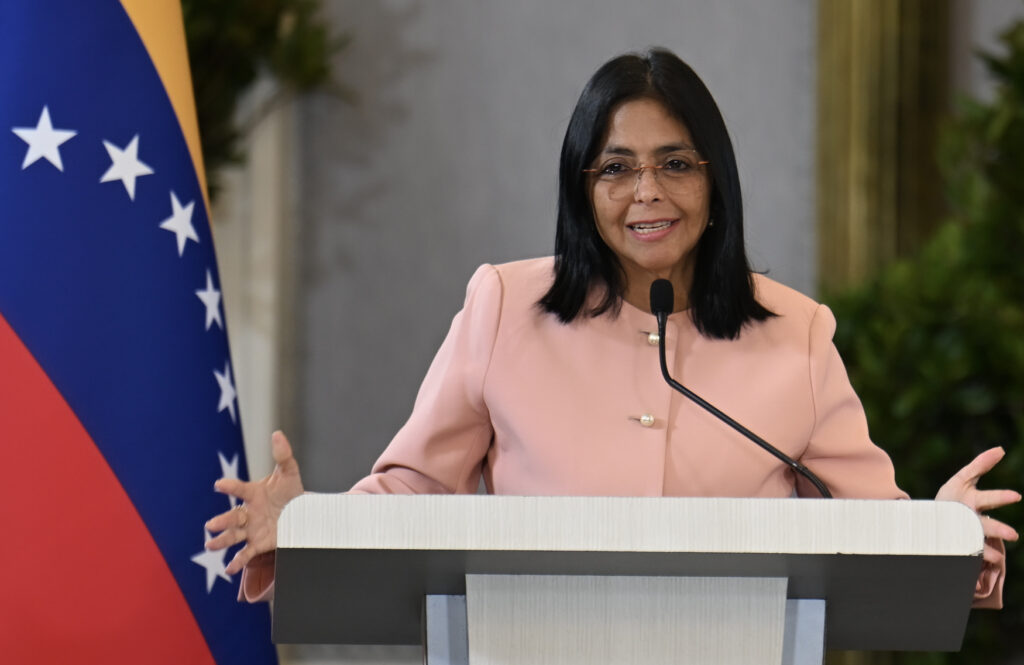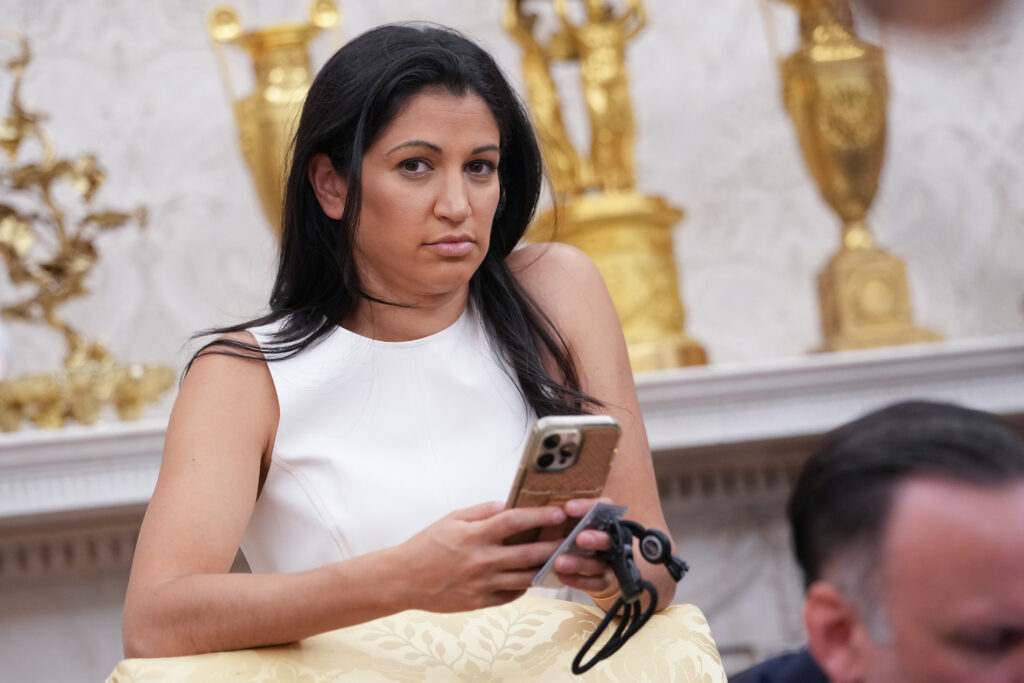Venezuela’s president Nicolas Maduro was in a New York jail on Sunday after a shock US snatch-and-grab raid to remove him from power and assert Washington’s control over the oil-rich South American nation.The US military carried out air strikes on Venezuela’s capital Caracas early on Saturday. Commandos captured Maduro and his wife, who were flown to New York City where they face drug-trafficking and weapons charges.Handcuffed and in sandals, Maduro was escorted by federal agents through a Manhattan US Drug Enforcement Administration facility, a video posted by the White House on social media showed.”Good night, happy new year,” the 63-year-old leftist was heard saying in English.Maduro has led Venezuela with an iron fist for more than a decade through a series of elections widely thought to have been rigged. He came to power after the death of his charismatic mentor, former president Hugo Chavez.As news of his seizure rippled out, exiled Venezuelans waved flags and celebrated in plazas from Madrid to Santiago. About eight million Venezuelans have fled the grinding poverty and political suppression of their homeland. There was muted joy too in Caracas. “I felt the explosions lift me out of bed. In that instant I thought: ‘My God, the day has come,’ and I cried,” Maria Eugenia Escobar, a 58-year-old resident told AFP.But the streets in the Venezuelan capital remained quiet and many residents were apprehensive about what is to come.Trump said he was “designating people” from his cabinet to take control, but gave no further details. The Republican leader appeared to reject the possibility of the country’s opposition taking power, instead saying he could work with Maduro’s Vice President Delcy Rodriguez. Rodriguez poured cold water on that prospect, demanding Maduro’s release and vowing to “defend” the country.Late Saturday, Venezuela’s Supreme Court ordered Rodriguez to assume presidential powers “in an acting capacity”.But Trump indicated US involvement is likely for the long haul, adding to the confusion over how the country would be run.”We’re going to stay until such time as the proper transition can take place,” he said.- Massive crude reserves -Trump’s interest in tapping into Venezuela’s massive crude reserves also became clearer.”We’re going to have our very large United States oil companies… go in, spend billions of dollars, fix the badly broken infrastructure,” he said. “We’ll be selling large amounts of oil.”Venezuela produces just under a million barrels of crude a day, according to the Organization of Petroleum Exporting Countries (OPEC), and sells most of it on the black market at steep discounts.Trump claims Caracas is using oil money to finance “drug terrorism, human trafficking, murder and kidnapping”.Venezuelan territory contains about 17 percent of the world’s oil reserves, the International Energy Agency (IEA) reported in 2023, but is far from being a leading global producer after years of mismanagement and corruption.- Blackout and bombing -Venezuelans had been bracing for attacks as US forces spent months massing off the coast.Caracas residents woke to explosions and the sound of military helicopters around 2:00 am (0600 GMT). Air strikes hit a major military base and an airbase, among other sites, for nearly an hour.The top US military officer, General Dan Caine, said 150 aircraft took part in the operation, supporting troops who choppered in to seize Maduro with the help of months of intelligence into his daily habits — down to “what he ate” and what pets he kept.Maduro and his wife “gave up” without a struggle and there was “no loss of US life,” he said.Venezuelan authorities have yet to release casualty figures. But Trump told the New York Post that “many” Cubans in Maduro’s security detail were killed.At a celebration in Santiago, Venezuelan Yasmery Gallardo, 61, said she planned to return home soon from Chile where she had lived for the past eight years, telling AFP that Maduro’s capture was “tremendous for us”.In Miami, revelers cheered Trump as they embraced and waved the Venezuelan flag.For others in Florida, the uncertainty that surrounded the future of their home country sapped their euphoria.”I don’t trust Trump but I am very grateful,” said Eleazar Morrison, a 47-year-old Venezuelan.Countries such as China, Russia, and Iran, which have longstanding ties with Maduro’s government, were quick to condemn the operation, but their alarm was also shared by Washington’s allies including France and the EU.Venezuela’s ally China on Sunday called for Maduro to be “immediately released”.United Nations Secretary-General Antonio Guterres said he was “deeply concerned that the rules of international law have not been respected”.At Venezuela’s request, the UN Security Council will meet Monday to discuss the crisis, the Somali presidency of the Council told AFP.








